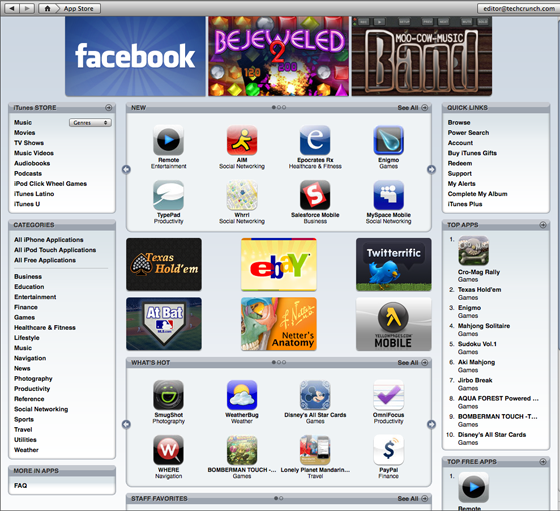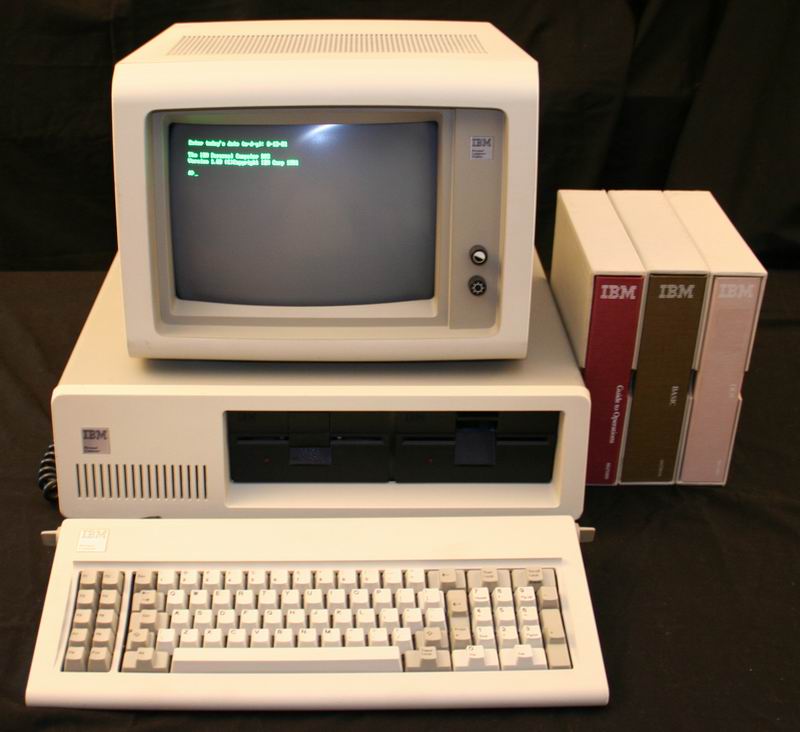![]() Earlier this month, Apple sent an email out to developers on a new process they’re implementing which more or less aims to sweep up some of the old garbage cluttering the halls of the App Store. The goal makes sense, as they want to trim down the amount of broken or otherwise totally unmaintained apps cluttering up the App Store which is still packed with all sorts of games and apps which might not even support the Retina Display (among many other potential problems of abandoning software on a quickly evolving platform). I get it, it’s a pretty terrible user experience to have someone searching for a game, and have the possibility exist where the one they choose to download hasn’t been updated in five years, resulting in it potentially looking terrible or maybe even not working at all. Apple’s mantra has always been “it just works," so keeping these old and often supremely janky apps on the App Store represents a real problem. However, Apple is doing what they seem to love to do: Addressing a problem in a way that creates an even bigger mess than they started with.
Earlier this month, Apple sent an email out to developers on a new process they’re implementing which more or less aims to sweep up some of the old garbage cluttering the halls of the App Store. The goal makes sense, as they want to trim down the amount of broken or otherwise totally unmaintained apps cluttering up the App Store which is still packed with all sorts of games and apps which might not even support the Retina Display (among many other potential problems of abandoning software on a quickly evolving platform). I get it, it’s a pretty terrible user experience to have someone searching for a game, and have the possibility exist where the one they choose to download hasn’t been updated in five years, resulting in it potentially looking terrible or maybe even not working at all. Apple’s mantra has always been “it just works," so keeping these old and often supremely janky apps on the App Store represents a real problem. However, Apple is doing what they seem to love to do: Addressing a problem in a way that creates an even bigger mess than they started with.
When I set out to write about this, it was largely spurred by a tweet I saw from Owen Goss who mentioned that both Dapple and Monkeys in Space were going to be removed from the App Store:
Got notice that Apple will pull Dapple and Monkeys in Space from the store if I don’t update the apps in 30 days.
— Owen Goss (@OwenGoss) September 19, 2016
In 2016, unless you’re a serious O.G. iOS gamer, there’s little reason why you should be aware of Dapple. It is (or, soon to be was) a puzzle game released in early 2009 which relied on a surprisingly complex color mixing mechanic. It didn’t resonate with me too much, but Dapple had a dedicated fan base of (typically art or color-minded) people who absolutely loved it. Dapple always felt historically important to me on iOS, for one weird reason: It was among the first iOS games from the clique of indie developers who built their studios by being first (or early) to market that failed.

The App Store launched in July of 2008, and for the first six months or so, developers enjoyed a gold rush of software sales which would go on to forever change the willingness of studios to hop on even the craziest of new platforms. (Developers since then have raced to things like the Ouya, VR, and countless other platforms just in case the insanity with the early iOS App Store ever happens again.) In these early days of the App Store, failure was unheard of. All you needed to do was release something. There was so little content on the App Store that even just uploading an app so it appeared in the chronological listing of new apps was good enough for loads of sales.
Owen’s blog post on the sales numbers behind Dapple was the first “Oh sh*t" moment for a lot of developers. An articulate breakdown destroying the commonly held belief at the time that all you had to do was release an app and you’d make money truly was very difficult to ignore. This would eventually snowball into the mess we’re in today where even if you release an incredible app- Sometimes that’s not enough. Maybe it’s a weird thing to get worked up over, but Dapple’s continued existence feels important. If I were building some kind of museum on the history of iOS gaming, The Numbers Post, and by association, Dapple would have to be a part of it.
This eventually led me to reaching out to as many developers as I could from the early days, expecting many similarly significant games to be on the verge of disappearing. What I discovered is that by and large, the games that were getting removed were pretty bad by today’s standards. It was a little disappointing, because I was oddly looking forward to discovering all these great games that were about to be deleted from existence, as it seemed like a really great opportunity to once again write about all these super classic iOS titles with sort of a “Get ’em before they’re gone" sense of urgency to the whole thing. Instead of classic games, it was just a flood of things that were pretty easy to agree with Apple in that they should probably be removed.
It wasn’t until I got talking to Limbic’s Arash Keshmirian about whether or not any of their early games got the removal notice that I was given totally new perspective on this: It doesn’t matter if the games getting removed are bad, because a lot of things you have nostalgia for typically aren’t great, or at least nowhere near as good as you remember them. Being able to revisit pieces of content is important, and by removing the ability to download and install these old (admittedly, often bad) games is killing your ability to experience the nostalgia that people closer to my age might feel loading up the original Super Mario Bros.

If you think back to your childhood, chances are you have incredibly vivid memories of playing all sorts of games. Many of those games were likely pretty terrible, because when you’re a kid you don’t care: You just want to play a game. I’m probably really dating myself here, but when I was young the computers we used at school ran DOS. Primarily they were used for basic word processing and learning BASIC, but we also had a typing game my teacher called “Dungeon Doom." Dungeon Doom, or whatever it was actually called, was an objectively terrible game. Two dungeon-y looking walls squeezed in on words in the middle which you had to type correctly before the walls squeezed together. Typing incorrectly made them speed up, and I seem to remember some kind of additional mini game you got to play if you did particularly well which I only think I ever even saw one or two times. That’s … all it did.
I spent a ton of time playing Dungeon Doom, and it didn’t matter that the game was bad, or totally boring, because you were in school and you were playing a video game. Assuming I can track down the disk images on some abandonware site, I can download DOSbox and play Dungeon Doom until the cows come home. Eventually, my school district upgraded their computers and we got to play the Munchers series of games, which similar to Dungeon Doom, were pretty bad games that weren’t that fun but I totally sunk hours into because you felt like you were somehow getting away with something playing a video game at school. The nostalgia I have for these kind of games are off the charts, as they truly represent some of my earliest gaming memories, and I can revisit them at any time I feel like going to the effort of doing so.
However, instead of the 80’s and 90’s, imagine the early 2010’s when iOS gaming was slowly starting to form into what it is today. Put yourself in the shoes of a kid who instead of playing Dungeon Doom and Number Munchers is playing some game that any number of objectively bad, likely ad-laden or otherwise somewhat broken. I’ve got a bad habit of shoulder surfing kids when I’m out and about to see what sorts of things they’re playing, and it’s rarely anything that anyone reading TouchArcade would give a second look. It just seems sort of crazy to think that if your mom downloaded some terrible free game to keep you busy while you ride around in a shopping cart, and you’ve got super fond memories of this game which you likely dumped tons of time into, you’ll (potentially) never be able to download that game again if the original developer isn’t still around updating it. It’s like if I could never play Super Mario Bros, or Dungeon Doom, or Number Munchers ever again because someone hasn’t stuck around for 30 years to maintain them.

It puts us in this weird spot where massive swaths of the past of iOS gaming is effectively going to be deleted, which all around feels wrong even if the games getting nuked most people would consider “bad." Mobile gaming represents a monumental shift in the way people play games, and I really don’t envy any kind of historian trying to go through and figure out how to piece together things which straight up don’t exist anymore. I remember how much developers used to demonize pirates as piracy rates on mobile games began to skyrocket, but wouldn’t it be weird if the history of iOS gaming, and the continued ability to access legacy iOS titles for nostalgia purposes, was only possible because of pirates?
That’s the situation Apple is creating here, which all around just feels weird. I get that they want to clean up the App Store, it’s a noble goal, but why remove things entirely instead of just hiding them from search results by default? Really, what harm is there if I want to try to play some super janky physics puzzle that barely even works anymore but I have super fond memories for? Why should Apple be the one to tell me, “No, you can’t do that?"